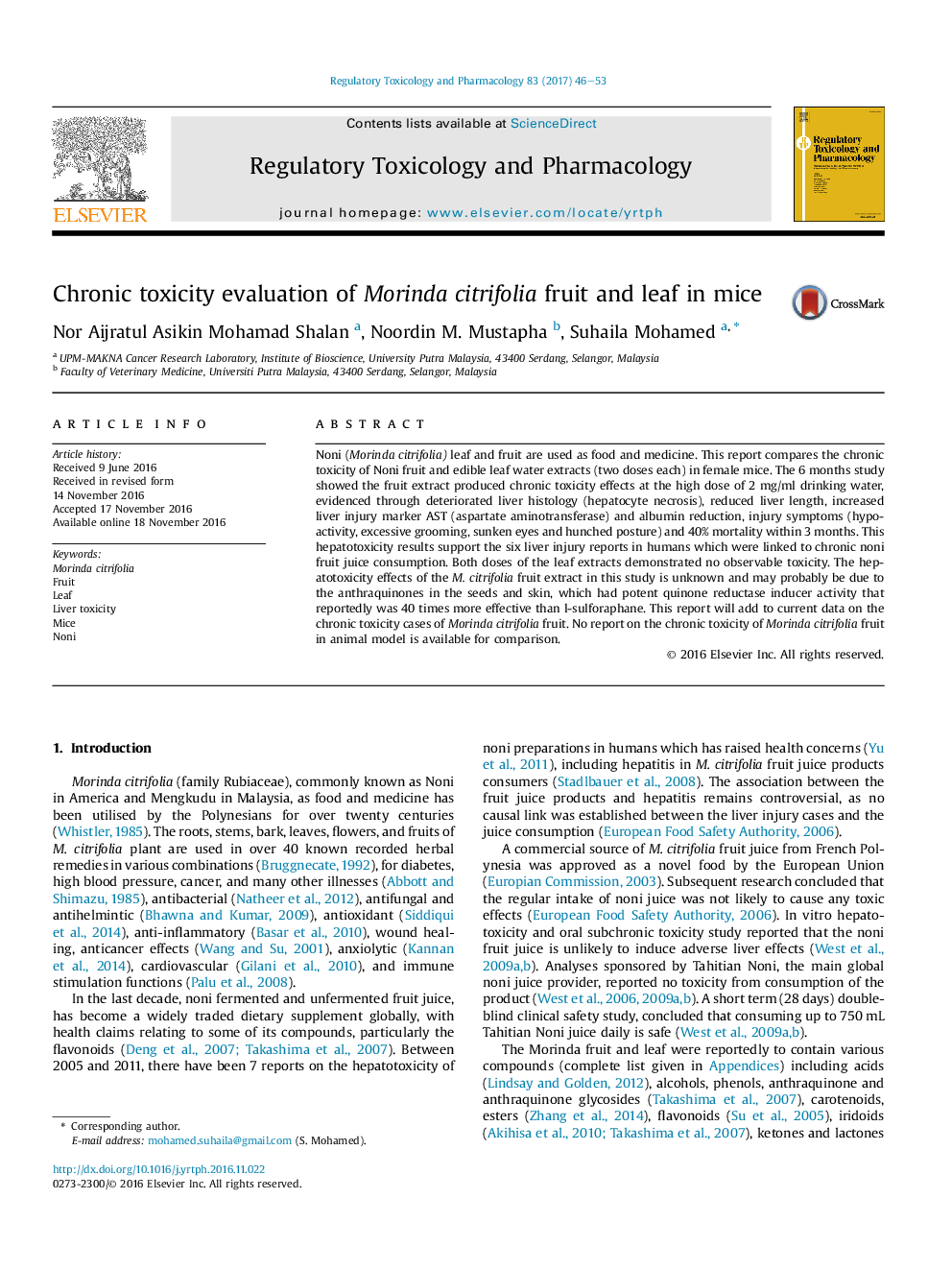| کد مقاله | کد نشریه | سال انتشار | مقاله انگلیسی | نسخه تمام متن |
|---|---|---|---|---|
| 5561226 | 1562120 | 2017 | 8 صفحه PDF | دانلود رایگان |
- Chronic intake of high dose Morinda fruit extract (2Â mg/ml) damaged mice liver.
- Chronic intake of low dose Morinda fruit extract (1Â mg/ml) produced low toxicity.
- Chronic intake of Morinda leaf extract produced no toxicity.
Noni (Morinda citrifolia) leaf and fruit are used as food and medicine. This report compares the chronic toxicity of Noni fruit and edible leaf water extracts (two doses each) in female mice. The 6 months study showed the fruit extract produced chronic toxicity effects at the high dose of 2 mg/ml drinking water, evidenced through deteriorated liver histology (hepatocyte necrosis), reduced liver length, increased liver injury marker AST (aspartate aminotransferase) and albumin reduction, injury symptoms (hypoactivity, excessive grooming, sunken eyes and hunched posture) and 40% mortality within 3 months. This hepatotoxicity results support the six liver injury reports in humans which were linked to chronic noni fruit juice consumption. Both doses of the leaf extracts demonstrated no observable toxicity. The hepatotoxicity effects of the M. citrifolia fruit extract in this study is unknown and may probably be due to the anthraquinones in the seeds and skin, which had potent quinone reductase inducer activity that reportedly was 40 times more effective than l-sulforaphane. This report will add to current data on the chronic toxicity cases of Morinda citrifolia fruit. No report on the chronic toxicity of Morinda citrifolia fruit in animal model is available for comparison.
346
Journal: Regulatory Toxicology and Pharmacology - Volume 83, February 2017, Pages 46-53
